Global
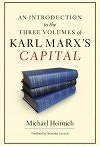
Heinrich’s modern interpretation of Capital is now available to English-speaking readers for the first time. It has gone through nine editions in Germany, is the standard work for Marxist study groups, and is used widely in German universities. The author systematically covers all three volumes of Capital and explains all the basic aspects of Marx’s critique of capitalism in a way that is clear and concise. | more…
The July–August 2007 crisis in subprime mortgage markets precipitated the collapse of the market for asset-backed securities, forcing huge write-downs of more than $45 billion on the balance sheets of major banks. In the aftershock, interbank lending dried up. Bond insurers and money market funds were beset by a loss of confidence as the credit squeeze spread. The plunge in stock markets in January 2008 suggests that the repercussions of the collapse of the subprime mortgage market are still working their way through financial markets. With over 170,000 jobs lost and the expected spate of foreclosures, many observers believe that the credit crunch has pushed the economy towards a recession. | more…
Twenty years ago climatologist James Hansen of NASA’s Goddard Institute of Space Studies, widely considered to be the world’s leading authority on global warming, first brought the issue into the public spotlight in testimony before the U.S. Congress. Recently, Hansen published an article entitled “Climate Catastrophe” in the New Scientist (July 28, 2007), http://www.newscientist.com. There he presented evidence suggesting that under “business as usual,” in which greenhouse gas emissions continue to increase unchecked, a rise in sea level by several meters during the present century due to the melting of polar ice sheets is a “near certainty.” | more…
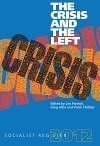
The global economic crisis that closed the first decade of the 21st century has demonstrated that the contradictions of capitalism cannot be overcome. The challenge for socialist analysis is to reveal both the nature of these contradictions in the neo-liberal era of globalized finance, and their consequences in our time. This volume, a companion to The Crisis This Time: Socialist Register 2011, examines the response of the international Left and asks, how has the Left responded and can it offer an alternative to faltering capitalism? | more…
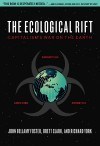
Humanity in the twenty-first century is facing what might be described as its ultimate environmental catastrophe: the destruction of the climate that has nurtured human civilization and with it the basis of life on earth as we know it. All ecosystems on the planet are now in decline. Enormous rifts have been driven through the delicate fabric of the biosphere. The economy and the earth are headed for a fateful collision—if we don’t alter course. | more…
In January 2007 the Development, Concepts and Doctrine Centre of the UK Ministry of Defence published a ninety-page report, entitled Global Strategic Trends, 2007–2036, highlighting a wide array of potential dangers to the prevailing order over the next thirty years. The report is organized around three “Ring Road Issues”: (1) climate change, (2) globalization, and (3) global inequality (p. xiii). Global warming and the possibility of abrupt climate change, together with the end of “the golden age of cheap energy,” are seen as placing increasing strains on populations throughout the planet (p. 31). The globalization of the world economy, embodying “particularly ruthless laws of supply and demand,” is viewed as creating new interdependencies, contradictions, and conflicts. Expanding global inequality, the UK Ministry of Defence insists, could lead to “a resurgence of not only anti-capitalist ideologies . . . but also to populism and the revival of Marxism” (p. 3) | more…
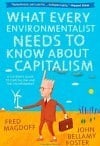
There is a growing consensus that the planet is heading toward environmental catastrophe: climate change, ocean acidification, ozone depletion, global freshwater use, loss of biodiversity, and chemical pollution all threaten our future unless we act. What is less clear is how humanity should respond. The contemporary environmental movement is the site of many competing plans and prescriptions, and composed of a diverse set of actors, from militant activists to corporate chief executives. | more…
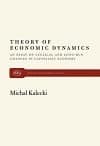
In his Essays in the Theory of Business Cycle published in Polish in 1933, Kalecki clearly stated the principle of effective demand in mathematical form. By 1935 he outlined his theory of employment, demolished the then-orthodox remedy for a depression — that is, wage cutting — and pinpointed the importance of investment for economic dynamics. | more…
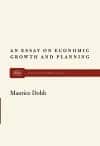
This important essay dates from the end of the fifties. At that time, the rapid rate of Soviet industrialization had directed the attention of economists to problems of economic growth of former colonial areas which had won political independence. As Dobb points out, economists were chiefly concerned with the problems of growth under conditions of private ownership of capital and where investment is primarily under the control of private individuals or firms. The theories of economic growth in vogue at the time derived largely from the well-known growth conditions set forth by Roy F. Harrod and Evsey D. Domar. | more…
Our friends Leo Panitch and Colin Leys, editors of the Socialist Register, have recently published Coming to Terms with Nature: Socialist Register, 2007 (Monthly Review Press, 2006), which includes contributions by a distinguished group of analysts addressing crucial environmental issues—dealing with everything from “fossil capitalism” to eco-localism | more…
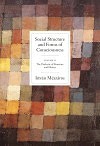
In The Dialectic of Structure and History, Volume Two of Social Structure and Forms of Consciousness, István Mészáros brings the comprehension of our condition and the possibility of emancipatory social action beyond the highest point reached to date. Building on the indicatory flashes of conceptual lightning in the Grundrisse and other works of Karl Marx, Mészáros sets out the relations of structure and agency, individual and society, base and superstructure, nature and history, in a dialectical totality open to the future. | more…
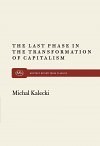
This volume includes six essays, the first dating from 1935 and the last from 1967, by one of the outstanding economists of our time. The economics presented in this volume is political economy worthy of the name: a discipline that shows us the social relations, in particular the class and group conflicts, behind the economic quantitative relations. | more…







